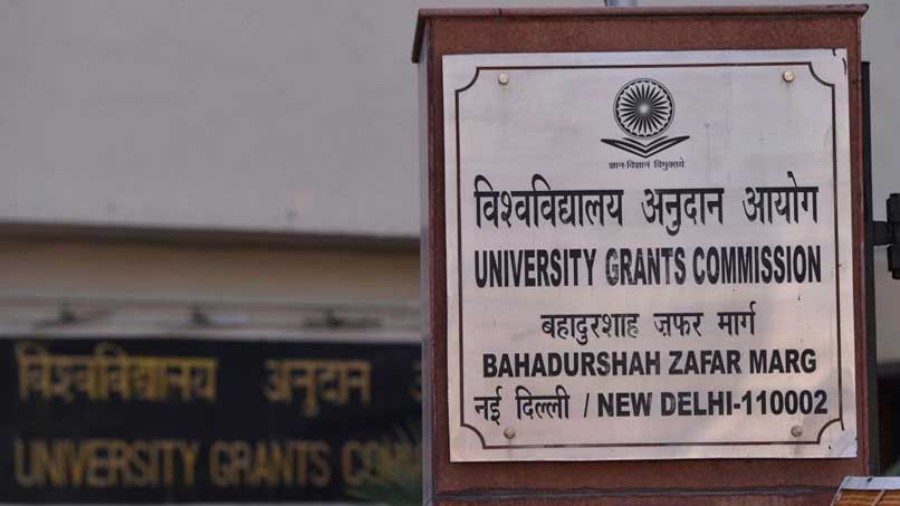Universities and colleges outside containment zones have been given the go-ahead to restart classes in person in a phased manner with precautions for certain categories of students.
The University Grants Commission on Thursday issued guidelines for the physical reopening of institutions of higher learning, which have been holding online classes in view of the pandemic.
“Universities and colleges may plan opening the campuses in phases, with such activities where they can easily adhere to social distancing, use of face masks and other protective measures. This may include administrative offices, research laboratories and libraries, etc,” the guidelines say.
The university vice-chancellors and college principals will take the final decision on reopening in areas that state governments deem safe.
According to the guidelines, students in research programmes and postgraduate students of science and technology can return to classrooms. The numbers of these students are less and it would be easy to ensure physical distancing and other precautions, the guidelines say.
Final-year undergraduate and postgraduate students may also be allowed to attend classes in person in the next phase for academic and placement purposes. However, not more than 50 per cent of the total students should be present at any point of time in class.
For other students, such as those in first and second-year undergraduate courses and first-year master’s programmes, online or distance learning shall continue to be the preferred mode of teaching. If required, such students may visit their respective departments in small numbers for consultation with the faculty members with prior appointment.
The guidelines suggest that no student can be forced to attend classes in person and the institutions can consider providing online study materials and access to e-resources to students preferring to study from home.
The universities and colleges will have to follow standard precautions such as not allowing the sharing of hostel rooms, 14 days’ quarantine for returning students and conducting classes with a maximum of half the total strength.
Hostels will be opened only if necessary but sharing of rooms won’t be allowed. Symptomatic students should not be permitted to stay in hostels under any circumstances, the guidelines say.
Since residential students would be coming from different locations, they shall remain in quarantine and self-monitor their health for 14 days before being allowed to attend classes or other activities. This would also apply to students who furnish a negative Covid report.
The UGC guidelines say that students, teachers and other staff members should download the Aarogya Setu contact-tracing app.
The guidelines say the institutions have to ensure proper sanitisation at all learning sites, conduct temperature screening of students, faculty and other staff members, get everyone to wear masks and set up facilities for sanitisation of hands at entry points.
Sitting places in classes, labs and libraries should be clearly marked by leaving every alternate seat vacant. Older employees, pregnant staffers and employees who have underlying medical conditions should preferably not be exposed to any frontline work, the guidelines say.












